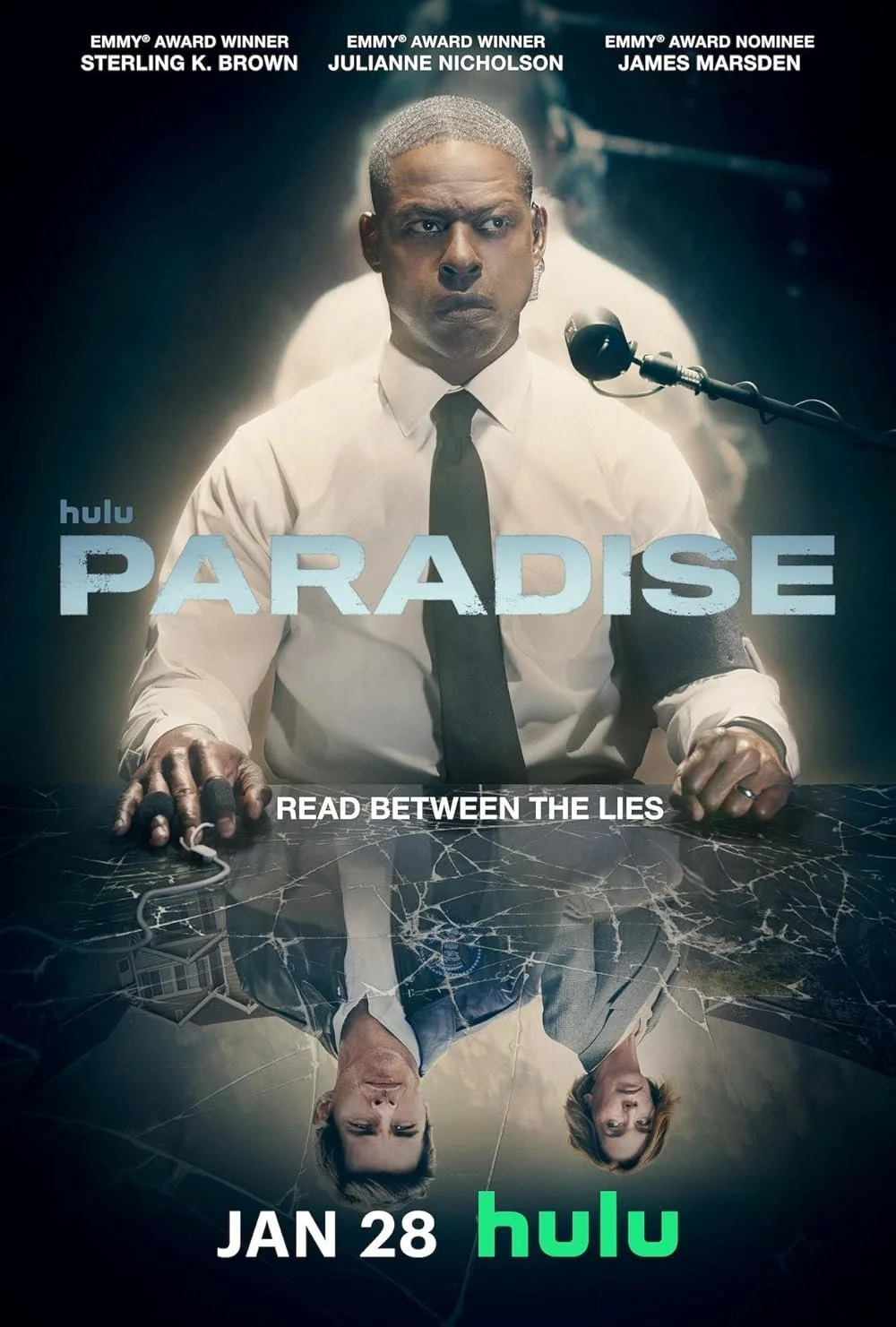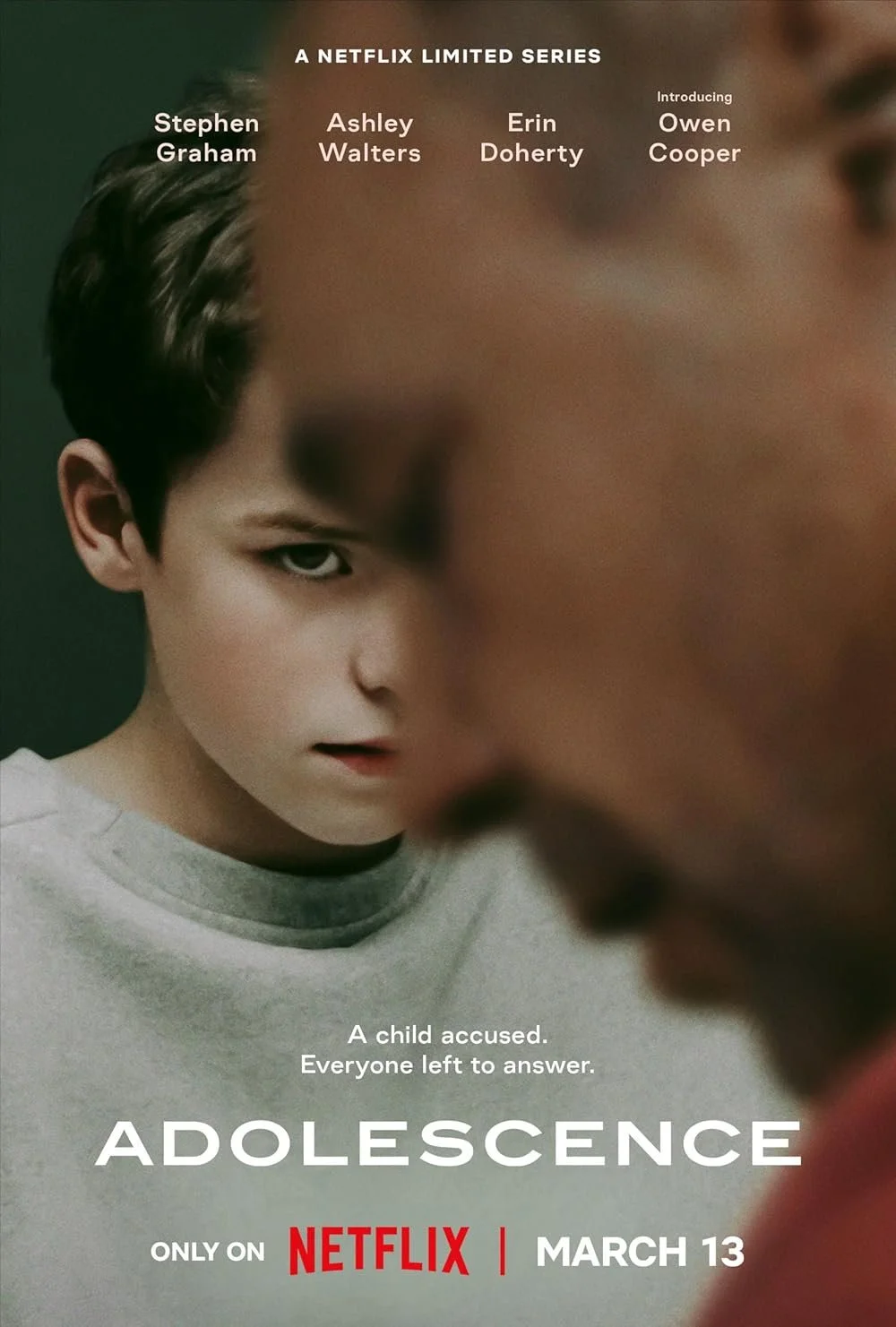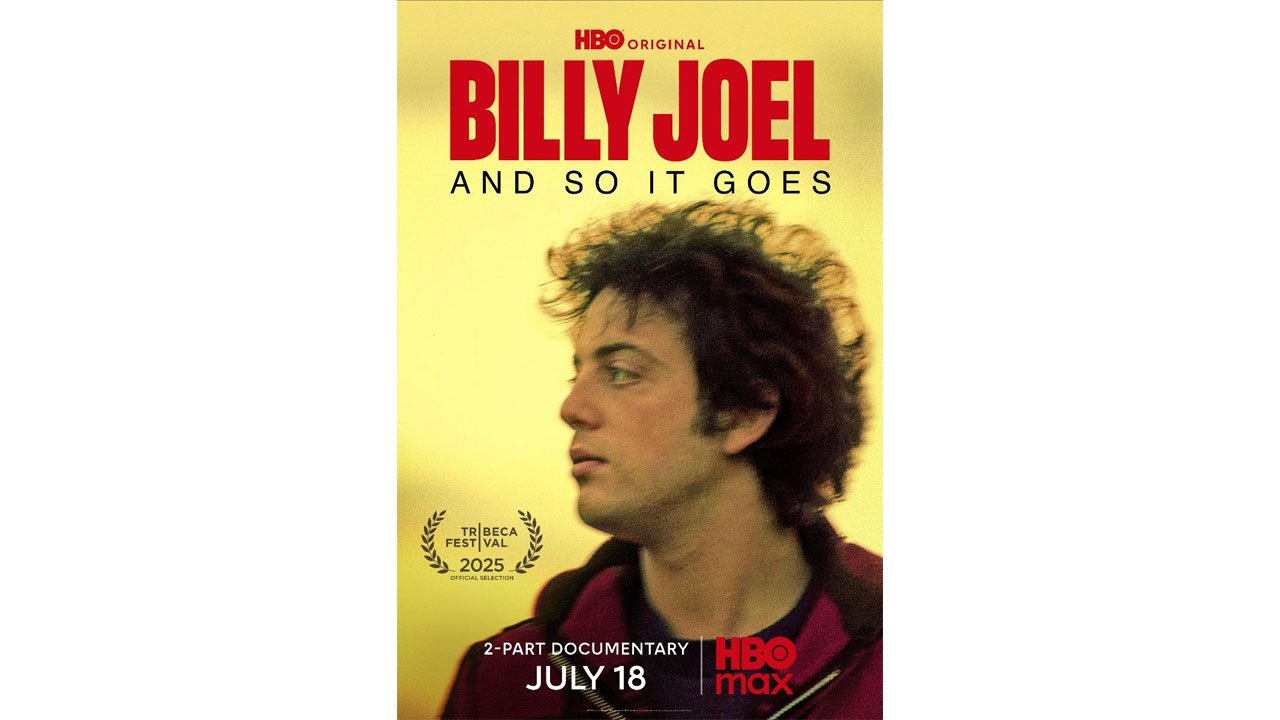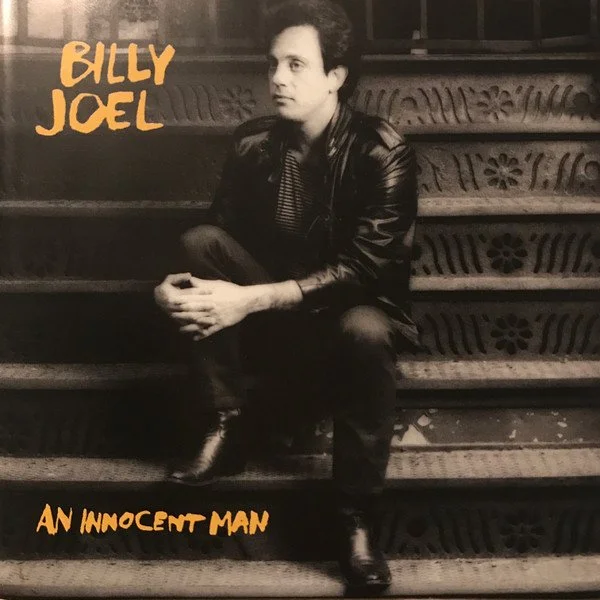Catching up with The Culture Part 1: What’s Worth Watching on TV
Popular culture in many forms, from books to museums to podcasts, feels most essential during times of pronounced political and cultural disruption, uncertainty, and frustration. While the role of art will always exceed the limitations of judicial or legislative rhetoric, we need it to process our inner and outer lives—a broader range of instincts and desires than could ever be confined by politics. There are so many distractions leaping at us from the “attention economy” we can easily forget the things that bring us joy and meaning. Bogged down in these constant negotiations, it's taken me a while to make space to return to a reflective space about the best culture available to us. But I am back and excited to share the culture that has shaped and informed my presence in the world over the last few months.
Television (Comedies)
I begin with television because there is so much of it to watch!
The July 15th announcement of The Primetime Emmy Award nominees made me pause to think about the best television I've watched over the last few months that worth sharing. The list:
The Studio (Apple TV+)
Hacks (HBO/HBO Max/Max/Whatever it’s called!)
Abbott Elementary (ABC)
Shrinking (Apple TV+)
Somebody Somewhere (HBO)
The Righteous Gemstones (HBO)
The Bear (Hulu)
Several comedies mentioned on Emmy nomination day are worth noting. The five listed above are (or were in the case of Somebody) some of the best because they each have a clearly defined identity and feature uniformly excellent ensembles. The Studio is a laser focused satire of the Hollywood studio system. Every episode is a winner but “The Oner” is particularly tense, nervy, and funny much like the entire show. Hacks continues evolving in interesting directions. We think the season is about the delicious rivalry between newfound late night host Deborah and her head writer/blackmailer/foil Ava but it’s really about the necessity of unity and integrity in the face of a changing television industry. Guest spots by Jimmy Kimmel and Julianne Nicholson add a nice touch to the ensemble.
The most sitcom-oriented comedies, Abbott Elementary and Shrinking, remain satisfying. I've enjoyed Abbott from the very beginning and despite its familiar mock documentary setting it still has endearing characters, original storylines, and finds creative ways to comment on the state of education in this country with a knowing smile. Comparatively, I only started watching shrinking recently and watched the first and second season in a slow binge like fashion. Like other bill Lawrence shows, such as Cougar Town, it is very much an ensemble-based show with a very perky comedic rhythm. While at times the ensemble’s immediate access to each other feels too insular for a show set in L.A. the show is very watchable, its relationships are growing deeper, and its mix of levity and behavioral insight which makes sense for a show about an office of therapists and the people in their lives.
Idiosyncratic series that are not about media industries are also worthy. Though I wish the loving and intimate Somebody was nominated for Best Comedy Series and that Bridget Everett was nominated for Best Actress I’m delighted she was nominated for a writing award and that the superb Jeff Hiller was nominated for best supporting actor in a comedy. It’s unfortunate that the zany Righteous Gemstones lacks recognition. It's such an unpredictable series that balances pathos and absurdism with humor. The whole ensemble is comprised of intricately designed characters and fully committed performances great but Walton Goggins as Uncle “Baby” Billy is one of the more iconic performances of our time. If you know you know—get to know it.
The Bear season 4 is mostly a return to form. Frankly, season three was so leaden the fourth season could only be an improvement. In the third season the show got in its own way, taking its prestige status for granted and vacillating between redundancy, pretentiousness, and stasis. The series is at its best when it shifts beyond general angst and tension and focuses on mining a specific set of circumstances such as Carmen sorting out his relationship blocks with his mother, and cousin Richie making peace with his ex-wife’s new husband. The standout episode (“Worms”) sees Sydney bonding with her cousin’s daughter through sharing food and tidbits of life experience. It’s a remarkably warm and delicate slice-of-life set in the Southside of Chicago that expands the show’s universe.
Television (Dramas)
Bad Sisters (Apple TV+)
Severance (Apple TV+)
Paradise (Hulu)
Forever (Netflix)
The first season of Bad Sisters, a dark dramedy centered on five sisters and set in Dublin, Ireland, is such a darkly funny and thrilling family saga that it was hard for me to imagine what the second season would look like. But they found a fresh angle to engage us with in season two focusing on the second marriage of second eldest sister Grace (Anne-Marie Duff) and friend and neighbor Roger’s mysterious sister Angelica (Fiona Shaw). I found the second season just as funny and provocative and mysterious as the first. Even though the only Emmy nominee was Sharon Horgan (who plays the eldest sister Eva) the fact that it was recognized speaks volumes about what a great show it was
Bad Sister’s Apple counterpart Severance had a very interesting second season as well. Like the first season it moved a bit slowly, but we were able to dive deeper into the roots of (the fictional corporation) Lumin, and the origin stories of its characters' lives. The show was very daring in the deliberate way it pulled us out of the present into the immediate past and propelled us forward by its explosive season finale. It has a kind of smoldering, slow burn quality that eventually pays off and it makes us anticipate the next season. I was especially taken with the way the now Emmy-nominated actor Tramell Tillman broke through Mr. Milchick’s tightly controlled façade and revealed his frustration and ambivalence about his role.
I was surprised by the way Paradise really grabbed my attention. When I initially saw the trailer, I appreciated its talented cast (e.g., Sterling Brown, Julianne Nicholson) but it was unclear if its premise was special or just a garden variety thriller. After ignoring it I gave it my attention and was continually drawn in and surprised by its take on a unique pre- and post-apocalyptic take. The undeniable Brown, who plays the lead Secret Service agent assigned to protect President Bradford (James Marsden), anchors the series bringing his signature intensity and conviction to the role. As agent, husband, father, survivor, and pursuer of truth his modulation between these roles astonishes. James Marsden makes for a convincing louche, nepo-baby President and Nicholson is equally brilliant a ruthless evil tech billionaire.
Another surprise was the endearing Netflix adaptation of Judy Blume's 1975 young adult novel Forever. Though it was adapted for television in 1978 in this version famed showrunner Mara Brock Akil depicts two highly motivated Black teenagers figuring out college admission and first love in 2018. Justin a nervous, anxious, and sweet guy from an affluent family is drawn to Keisha, a smart, tough and focused student from a working-class single mother led household. We watch them strive to balance their desire to thrive academically with their equally intense desire to have a satisfying intimate relationship with each other. I found both leads (played by Lovie Simone and Michael Cooper Jr.) very charming and believable. Further, these kinds of teen love stories can be very superficial and cliched, but the writing captures the essence of modern teen vernacular without erasing the universal uncertainty and vulnerability of adolescence. Forever tells their stories, and their families, in an emotionally and culturally authentic fashion; we're rooting for them to grow into themselves.
Television (Miniseries/Limited Series)
Adolescence (Netflix)
Dying for Sex (Hulu)
Dope Thief (Apple TV+)
Hulu has developed a reputation for airing some of TV’s most provocative miniseries including The Act, Normal People, and The Dropout, and its adaptation of Molly Kochan’s unusual cancer themed story in Dying for Sex is another standout. Kochan’s breast cancer diagnosis led her to end her unsatisfying marriage and explore her sexuality with the time she had left, and she did so with the love and support of her loyal best friend Nikki who put much of her life on hold to serve as a caretaker. Michelle Williams and Jenny Slate, who star as Molly and Nikki, respectively, deliver powerful lived-in performances. While it might take a viewer time to adjust to Molly’s glee, trepidation and liberation as a cancer-stricken dominatrix, the teleplay mostly succeeds in illuminating the full context of her life. Williams has become adept at challenging roles, imbuing them with extraordinary shading, Slate, best known for her sharp comedic delivery, delivers her most complex performance yet, and Rob Delaney, as Molly’s submissive neighbor and Sissy Spacek as Molly’s unreliable mother are excellent.
Adolescence is the buzziest miniseries since last year’s Baby Reindeer and it’s clear why. Instead of a 10 episode long drawn-out murder mystery it's about how an adolescent boy (Jamie Miller played by Owen Cooper), who has clearly murdered his female classmate, reaches a point of isolation and alienation so intense that it spills over into the abuse of others, and larger questions of who we hold responsible for the behavior. Is it society, internet culture, parents, and peer pressure? And how much of it is stems from the agency of the child who ostensibly understands killing someone is immoral. Mercifully lean and purposeful at four episodes, the series doesn't offer easy answers, which makes it both thoughtful and provocative. Each episode renders its core themes of revelation, discovery, and uncertainty with gratifying precision. The most memorable episode comes in the third episode in a meeting between Jamie and forensic psychologist Dr. Ariston (played by Erin Doherty). Tightly written and directed, it is a daring feat of acting set in a claustrophobically tense and emotional atmosphere of a prison. Intricately filmed and expertly paced you just can't take your eyes off it or shake off its implications.
Dope Thief, starring Oscar, Tony, and Emmy Award nominee Brian Tyree Henry and featuring wonderful supporting performances by Wagner Moura, Kate Mulgrew, and Ving Rhames, takes a seemingly absurd premise to thrilling dramatic heights. Set in Philadelphia, it finds us following Ray (Henry) and his best friend Manny (Moura) raiding drug houses disguised as DEA agents. After a successful run with quick profits and limited risk they attempt to elevate their enterprise by raiding a meth house. Unbeknownst to them their botched raid finds them out of their depth and trying to outsmart an elaborate cartel. Tense, funny, and occasionally poignant, it’s a great watch. Henry’s ability to portray a wide range of characters with laser precision reiterates him as one of our best thespians. Amid running the scam and trying to evade the cartel, he looks out for Manny, who struggles with addiction, and tries to take care of his stepmother Theresa (Mulgrew) who is constantly being drawn back to his toxic father Bart (Rhames) a Medea type character serving a prison term. Each episode finds Ray and Manny facing a new dilemma and the whole time you wonder how they will balance all of this and still function.
Television (Documentaries)
Deaf President Now! (Apple TV+)
Billy Joel: And So it Goes (HBO)
Deaf President Now! documentary is the most touching thing I've seen on television in quite some time. Set at Gallaudet University the only deaf university in the world, it captures the self-determination of its students (circa 1988) to insist that their next president is a person who is deaf, or hard of hearing, understands sign language and reflects the unique values of their student body. The actual style of the film, filled with signing heads (in lieu of talking heads) is very straightforward, but the film excels at spotlighting the diversity and complexity of the deaf community and tell their story in a way that requires viewers to do something that feels increasingly rare and precious: to pause, to pay attention, to listen, and empathize. Because Americans are living in an era of open hostility higher toward higher education, particularly students, Gallaudet’s students’ willingness to fight for social justice illustrates why this is matters.
I recently completed watching the two-part documentary And So It Goes on the life and career of Billy Joel. As someone born in the mid '70s Joel's music was pervasive. It sounds funny but when I was growing up the song “Just the Way You Are” was new enough that it seemed to always be on the radio and I loved it. The warm electric piano chords, the earnestness of Joel’s singing, that beautiful saxophone solo by jazz saxophonists Phil Woods, and of course the tender lyrics made it one of the definitive songs of my early childhood. Because so much negative attention has been devoted to his personal struggles with alcohol and his failed relationships, as well as past business problems, I've tended to focus a lot more on his musical output and a lot less on who he is as a person. The documentary inspired me to go there.
A little context: A lot of rock-oriented music critics of the 1970s and 1980s, when rock criticism was more influential than today, thought his music was too poppy, sentimental, popular, and overly influenced by pre-rock pop music to really rock. They also don't think he was political enough, compared to someone like Bruce Springsteen, and found his attempts to create rock-oriented music (e.g., 1980’s Glass Houses) pretentious and whiny and generally dismissed him. Those who love his music tend to praise his melodicism, eclecticism and both his ability to create interesting characters and scenes as well as his ability to reflect sentiments mirroring a kind of working class every day American sensibility. For example, many people love “Allentown” and “Scenes from an Italian Restaurant” for their emphasis on character and place. After recording pop from 1971-1993 he stopped writing and recording pop music and has mostly focused on concert tours. Even if critics have not always warmed up to him Joel has 33 top 40 hits, four chart topping albums, five Grammy Awards, and has been recognized by the Rock and Roll and Songwriters Hall of Fame among others so fans and industry folks accept him.
When I was watching the documentary I was primarily interested in the musical aspect but learning about his life was helpful because it provided a framework for understanding certain choices. Because Billy Joel emerged during the so-called singer-songwriter era of the early 70s, it's easy to conclude that all his music is about him. Arguably that statement is both true and false. There is a kind of travelogue dimension to a lot of his songs in terms of parallels between where he is and what he's writing about. So, writing “Say Goodbye to Hollywood” reflects the fact that he lived in L.A. in the early 1970s or many of the songs on The Stranger and 52nd Street reflects the unexpected commercial upsweep he began experiencing around 1977 as well as aspects of his relationship with his former wife and manager Elizabeth Weber. Even though a lot of his rock-oriented songs tend to be petulant and some of his ballads can veer into mush or solipsism, I think 1983’s An Innocent Man, an homage to doo-wop and R&B, balances Joel’s talents best. Songs like “Leave a Tender Moment Alone” and “The Longest Time” are undeniable musically and tonally. They evoke the past without being so stuck in it. I was surprised by the vicious newspaper clippings featured in the documentary including various critics trashing Innocent’s music as derivative and schlocky. Where I hear a kind of loving tribute to the music that influenced him critics dismiss it as derivative and uninspired. Another argument could be made that he is openly alluding to composers and singers whether its flourishes from Beethoven or The Drifters. Innocent is not innovative, but homage is typical of pop music, and it does this expertly and warmly.
The same argument regarding originality could be made about someone like Springsteen who tends to be praised a lot more for some of his lyric portraits than the formal qualities of his music. I find it telling that Springsteen, Paul McCartney, Nas, P!nk, and other musicians are among those speaking to his artistry. Even though I don't hear a lot of Billy Joel in the music of Nas or P!nk the fact that such an eclectic group is discussing his music says something to me. In the end, I don't necessarily think a documentary like this is going to persuade you of something as personal as musical preferences. What it does allow you to do is look at a wider range of information to assess the value of his music. And So it Goes succeeded in making me curious to re-examine and re-explore some of his music and that in and of itself is a kind of achievement.
Bonus: Personally, the Billy Joel songs I most favor include “The River of Dreams,” “Leave a Tender Moment Alone,” “Just the Way You Are,” “The Longest Time,” “Don’t Ask Me Why,” and “This is the Time.” Numerous Joel songs are in the “solid” category such as “She’s Got a Way,” “My Life,” and “New York State of Mind.” I rarely seek them out but when I hear them it’s pleasurable without lapsing into nostalgia. A few of his songs irk me through either over exposure (“Piano Man”) or bombast (“We Didn’t Start the Fire,” “It’s Still Rock and Roll to Me”).
Various compilations, such as 2001’s accurately titled The Essential Billy Joel, sum up his hits and key album tracks successfully. His individual albums offer a more coherent sense of his musical interests and development, however. The late 1970s sets Turnstiles (1976), The Stranger (1977) and 52nd Street (1978) represent him at his best and most influential period. An Innocent Man is my personal favorite in terms of listenability, tone, and variety. His 1986-93 studio work is best represented by singles than albums. From what I’ve seen and heard experiencing him and his bandmates perform (there are various videos/DVDs in this vein) will be more engaging for fans than just listening to a concert album.
Television (Comedy Specials)
Jessica Kirson: I’m the Man (Hulu)
Roy Wood Jr: Lonely Flowers (Hulu)
Thanks to streaming services there is a seeming abundance of comedy specials, especially now that Hulu has entered the fray alongside Netflix and HBO Max. Two specials I watched on Hulu that really stuck with me were stand-up specials by Jessica Kirson and Roy Wood Jr. Both are seasoned comics who seem to be having a kind of career renaissance. Notably, Kirson is a well-known comic among comedians and certainly she has developed a strong following since debuting in the 1990s. But her special I’m the Man expands her audience and elevates her uniquely insightful and acerbic and confessional style. She does a fine job balancing pathos related to her family and struggles with sobriety while still offering a comedic perspective on the mores and habits of a new generation as well as various political and cultural aspects defining our age. She is a very endearing observer, and I enjoyed spending time with her.
Wood is well known for his stint on The Daily Show as well as his recent hosting gig on CNN’s Have I Got News for You. In his special Lonely Flowers, he addresses a very politically and culturally divided society that has increasingly settled for social isolation and echo chambers. Through the lens of sexuality, race, family and other elements he projects fierce intelligence and thoughtfulness behind his humorous storytelling. He is genuine without being saccharine and finds humor where others might resort to vulgarity or cheap sentiment. These seasoned comics are models for budding comedians as well as audiences who are frequently settling for the low hanging fruit in the comedy world rather than challenging themselves.
COPYRIGHT © 2025 VINCENT L. STEPHENS. ALL RIGHTS RESERVED.







